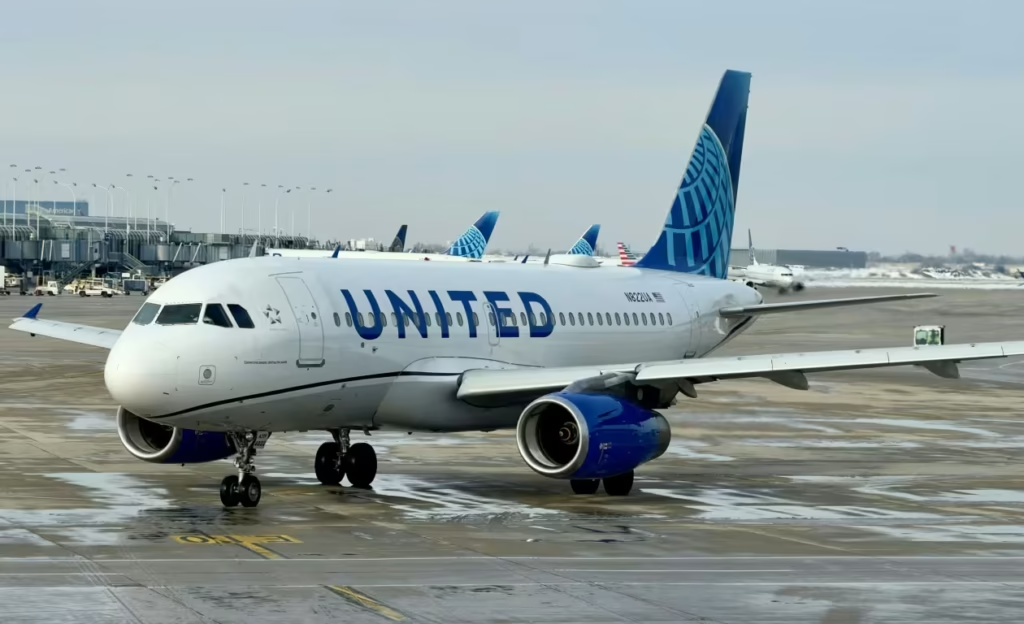A Sudden Shift in Travel Plans
In a move that has left travelers stunned and frequent flyers scrambling, two of America’s biggest airlines — United Airlines and American Airlines — have abruptly suspended their flight operations to Dubai and Doha. This decision, rooted in escalating tensions in the Middle East, has sent ripples through the aviation industry and the expat communities of both the United Arab Emirates and Qatar.
Passengers who had booked flights in and out of these Gulf destinations were caught off guard as announcements came swiftly, advising of immediate cancellations and rerouting options. For many, it wasn’t just a matter of travel inconvenience, but a disruption to long-awaited family reunions, business opportunities, and major life events.
Rising Tensions Spark Safety Concerns
The heart of this decision stems from growing regional unrest, leading to increased safety risks for air routes operating over certain Middle Eastern territories. Although neither United Airlines nor American Airlines specified exact security threats, both carriers confirmed that the choice was made in coordination with government agencies, ensuring passenger safety remained their top priority.

Airlines worldwide have often had to adjust routes and schedules during volatile geopolitical climates. However, the suspension of services to major international hubs like Dubai and Doha underscores the gravity of the situation.

How This Impacts Passengers and Airlines
For thousands of travelers, the immediate fallout includes canceled flights, rescheduled plans, and, in some cases, prolonged stays abroad. Business professionals, tourists, and expatriates who depend on regular flights between the U.S. and Gulf countries are now seeking alternative travel routes, often through connecting flights with other international carriers.
This sudden halt has also created a domino effect within the aviation industry. Not only are passengers affected, but airport operations, cargo shipments, and connecting flights through these key Gulf cities are now experiencing disruptions.
American and United both offered refunds and alternative booking options, though customers voiced concerns over limited availability, higher ticket prices with other carriers, and a general uncertainty about when normal services might resume.
Emotional Impact on Families and Communities
Beyond logistics, the emotional toll on families separated by continents is undeniable. Many American expatriates living in the UAE and Qatar rely on these direct flights for maintaining close ties with relatives in the U.S. Some were scheduled to fly home for summer vacations, weddings, and critical medical treatments, only to find their plans upended at the last minute.
Social media has been abuzz with stories of people stranded, venting frustration, and seeking advice on rerouting their trips. What would normally be routine travel has suddenly become a stressful and uncertain experience.
The Economic Ripple Effect
The economic consequences of halting flights between the U.S. and these major Gulf cities are significant. Dubai and Doha are not just popular tourist destinations but also pivotal international business hubs. Airlines depend on these routes for both passenger and cargo revenues, while businesses on both ends rely on seamless connectivity for trade and investment.
Travel industry experts predict that extended disruptions could cost airlines millions in lost revenue. Furthermore, other sectors such as tourism, hospitality, and international conferences could face declines in visitors and attendees from the U.S., affecting hotel bookings, event planning, and luxury retail.
For Gulf airports like Dubai International and Hamad International in Doha — consistently ranked among the world’s busiest — reduced traffic from U.S. carriers means a noticeable dip in arrivals and departures, affecting airport services, duty-free retailers, and ground transport operations.

Alternative Travel Options for Stranded Passengers
In response to the suspension, travelers have turned to other international airlines like Emirates, Qatar Airways, Turkish Airlines, and European carriers to bridge the gap. Though these flights often involve longer layovers and higher ticket prices, they currently remain some of the only viable options for those needing to travel between the U.S. and the Gulf region.
Some passengers also opted for rerouting through nearby countries such as Oman or Saudi Arabia before making connecting flights to their final destinations. Travel agents and booking platforms are experiencing a surge in requests for last-minute alternatives.
When Will Flights Resume?
At present, neither United Airlines nor American Airlines has provided a definitive timeline for resuming services to Dubai and Doha. Both airlines have indicated that they are closely monitoring the situation in coordination with U.S. and international authorities, and flights will only resume when it is deemed safe.
The decision to halt flights is reviewed daily, with airline officials emphasizing that passenger safety remains their foremost concern. Many hope that as tensions ease and airspace safety is reassessed, normal operations will soon return.
Lessons for International Travelers
This situation serves as a stark reminder of the unpredictability of international travel in today’s geopolitical climate. While many travelers purchase tickets assuming schedules will remain fixed, external factors — such as diplomatic tensions, security risks, and health crises — can swiftly alter plans.
Travel experts advise purchasing flexible tickets, considering travel insurance policies with trip interruption coverage, and staying informed through official airline updates and government travel advisories.
For frequent travelers to the Middle East, it’s also recommended to keep backup plans and alternative route options in mind when booking flights during unstable periods.
Industry-Wide Reactions
Aviation analysts believe this move by United and American could prompt other carriers to reevaluate their operations in the region, especially if tensions continue or escalate. Some airlines might opt for rerouting flights to avoid specific airspace zones, while others could temporarily suspend services if risks intensify.
The airline industry, still in recovery mode from the global pandemic’s impact, is particularly sensitive to such operational challenges. Every route suspension affects revenues, crew allocations, aircraft rotations, and airport partnerships — creating complex logistical and financial hurdles.
Meanwhile, Middle Eastern carriers like Emirates and Qatar Airways are expected to capitalize on this situation by accommodating increased passenger loads, albeit under increased operational scrutiny.
What Travelers Are Saying
Online forums and social media platforms are flooded with personal stories, complaints, and calls for clear communication from airlines. While many passengers have expressed understanding of the safety-first approach, others have criticized the short notice and limited rebooking options available.
One traveler, who had planned to fly from Chicago to Dubai for his brother’s wedding, shared how his trip was canceled 12 hours before departure. “I understand the safety concerns, but a heads-up a few days earlier would have helped. Now, I’m spending twice as much to reroute through London,” he posted on a travel community page.
Another passenger from Los Angeles, visiting family in Doha, lamented the uncertainty. “No one can tell me when flights will resume. I just want to know if I’ll make it home next week.”

The Bigger Picture
This latest development highlights how interconnected our world has become — and how swiftly geopolitical shifts can impact everyday lives. From business meetings to family holidays, countless plans hang in the balance when air routes are disrupted.
For the Gulf region, the hope remains that tensions will subside, allowing airlines to safely resume operations. Until then, travelers, expats, and the aviation industry must adapt to an uncertain and ever-changing landscape.
As one airline executive candidly remarked, “We operate in a world where safety must always come first. We’ll get people flying again — but only when it’s truly safe to do so.”
Do follow UAE Stories on Instagram
Dubai-India Travel: Air India Cancels Multiple Domestic, International Flights













